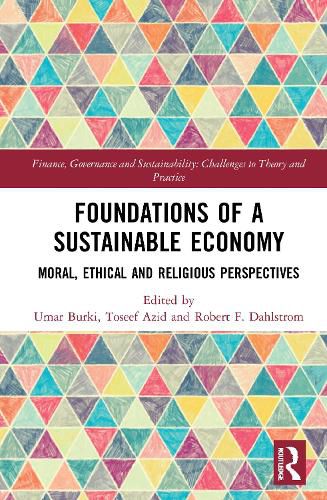Readings Newsletter
Become a Readings Member to make your shopping experience even easier.
Sign in or sign up for free!
You’re not far away from qualifying for FREE standard shipping within Australia
You’ve qualified for FREE standard shipping within Australia
The cart is loading…






This book addresses current practices related to sustainable development, its challenges and the future. People belonging to different genders regardless of their age, social class and education should be equal as citizens and individuals, and identical in their rights and responsibilities.
The business sector, authorities, societies and religious circles have the potential to play a fundamental role in curbing social ills and the degradation of the environment in this modern world. The authors of this book argue that without good governance, the status of a human being is unlikely to improve. They make the case that to achieve sustainability, government, society and the economy must ensure a platform for people to participate in decision-making and benefit from the rights they are accorded. By covering a range of perspectives across economic, social and moral life, the book will shed light on the problems and possible solutions to sustainable development and the triple bottom line, of people, planet and profit, under the umbrella of morals and divine law.
This will be a useful guide for undergraduate and postgraduate students across multiple disciplines, such as economics, religious studies, business studies, political science, anthropology and sociology.
$9.00 standard shipping within Australia
FREE standard shipping within Australia for orders over $100.00
Express & International shipping calculated at checkout
This book addresses current practices related to sustainable development, its challenges and the future. People belonging to different genders regardless of their age, social class and education should be equal as citizens and individuals, and identical in their rights and responsibilities.
The business sector, authorities, societies and religious circles have the potential to play a fundamental role in curbing social ills and the degradation of the environment in this modern world. The authors of this book argue that without good governance, the status of a human being is unlikely to improve. They make the case that to achieve sustainability, government, society and the economy must ensure a platform for people to participate in decision-making and benefit from the rights they are accorded. By covering a range of perspectives across economic, social and moral life, the book will shed light on the problems and possible solutions to sustainable development and the triple bottom line, of people, planet and profit, under the umbrella of morals and divine law.
This will be a useful guide for undergraduate and postgraduate students across multiple disciplines, such as economics, religious studies, business studies, political science, anthropology and sociology.